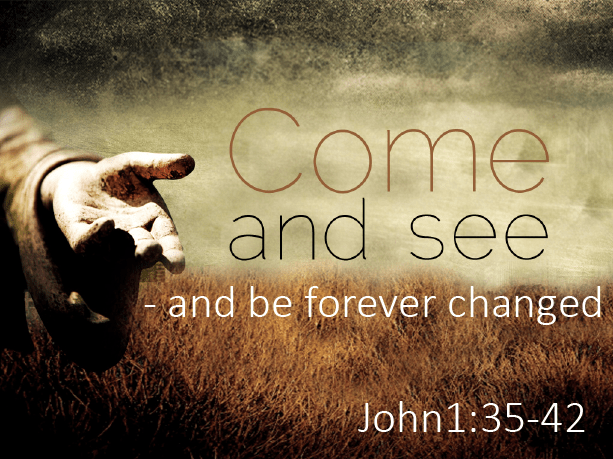
“What are you looking for?” That is the question today’s liturgy puts before us. It is a question addressed to us, but also one we address to God. It is the question of vocation.
Put another way, it asks, “What do you and God want to do with the life you have been given?”
Today’s readings invite us to consider the macro and micro dimensions of our individual vocations. The idea of vocation brings us to the heart of our relationship with God; it is based on an assumption that everything we do finds its meaning with the context of that relationship.
The macro dimension refers to the life decisions we each make: the choice of career, spouse, way of life. The talents God has given us, combined with our deepest desires and the needs of our times, lead us to discern the macro choices for how to live our vocation.
Those choices set the context for all our micro decisions, decisions about our daily opportunities to contribute to the extension of God’s reign.
Today’s Gospel invites us to share the adventure of vocation with two of John the Baptist’s disciples. They thought they had found the teacher who would give them the answers they sought.
Then that teacher pointed to another, someone they did not know, and said, “Behold the Lamb of God.” John loved them enough that their fulfillment mattered more to him than their companionship. His utter lack of egotism inspired them to try to catch up with Jesus as he walked along.
That was when Jesus turned to them and asked the most important question of their life: “What are you looking for?”
Rather than get tongue-tied or philosophical, they answered with a statement and a question. They made their statement by calling him “Rabbi,” acknowledging that they were looking to him as a teacher. Their question, “Where are you staying?” was a way of saying, “We want to know more.”
St. Augustine taught that our hearts are restless until they rest in God. That means that the human heart always seeks more until we encounter the source of love. At this first stage, the disciples were at home with their restlessness; they let their desire for more nudge them onto the road behind Jesus.
“Come and you will see” was the invitation into dialogue. When the Gospel tells us it was around four in the afternoon, the implication is that the two disciples went home with Jesus, ate and spent the evening. We could call this the day of their “first Communion.” It was the first time they heard Jesus talk about his vocation, his dreams and his mission. It was the first time they broke bread with him.
The Gospel lets us know that they were changed forever by what they encountered in him.
In response to what they found in Jesus, Andrew felt impelled to go to his brother Simon and tell him, “We have found the Messiah!” (That was no full-blown Nicene Creed, these guys lived in an atmosphere charged with hopes and messiah-style leaders.)
As so often happens, Andrew had the right vocabulary, but he didn’t yet know what it really meant. His afternoon of following Jesus and his next day proclamation about the Messiah were simply a symbol, a foretaste of how he would spend the rest of his life: listening and proclaiming, learning and doing.
That brings us back to the macro and micro dimensions of vocation. Now and then, we make macro decisions about vocation, decisions that set us on the particular path we think we are called to, a path that we think will lead us to know and serve God. The macro decisions, therefore, have to be incarnated in daily activities, micro choices to be faithful, moments of taking the risk of proclaiming and doing what we really believe to be right.
On this weekend as those in the United States celebrate Martin Luther King Jr., we remember that in 2015, Pope Francis addressed the U.S. Congress and spoke of King as someone whose dreams continue to awaken what is deepest and truest in the life of our people. King’s macro vocation was to be a prophet who awakened us to carry out God’s will for justice and the elimination of all prejudice. The micro dimension of our individual and national vocation implies daily responses to that call.
Today’s Gospel asks, “What are you looking for?” We respond to that question through all our choices, large and small. As people baptized and thus consecrated to God, we also must look to God and ask, “What are you looking for?”
God responds through the Scriptures and the needs of our times. It is ours to decide if we want to accept the invitation to come and see — and be changed forever.
